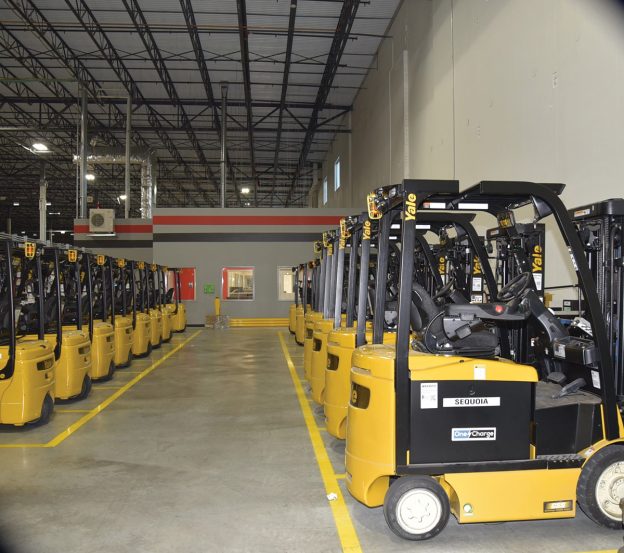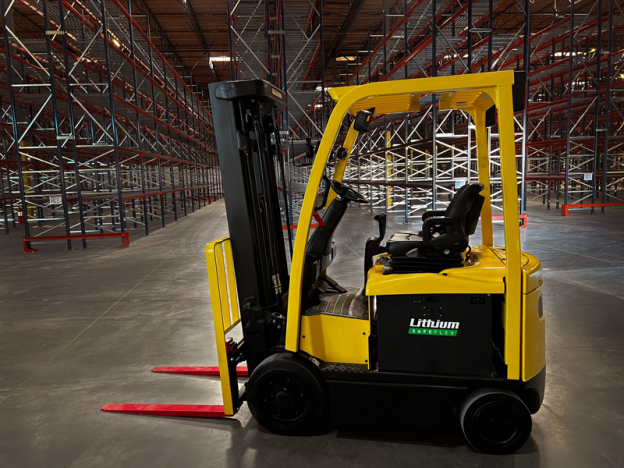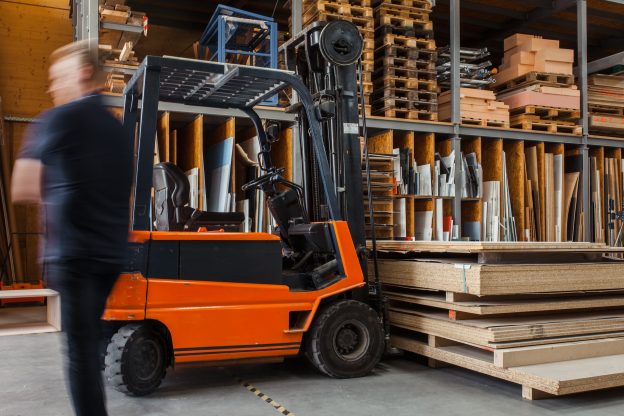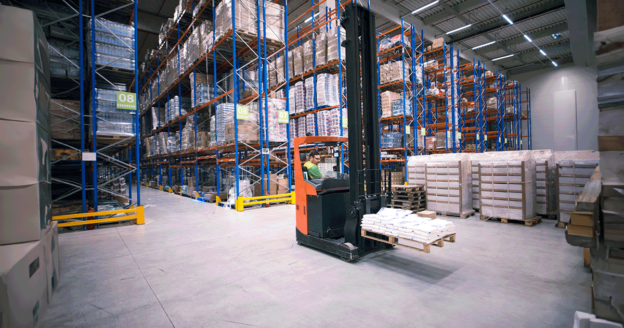Forklift batteries serve as the powerhouse for numerous industrial operations, particularly in the manufacturing, logistics, and warehousing sectors. Success in these sectors largely depends on how well the batteries are managed, as their efficiency and reliability directly impact operational productivity. Using a battery management system for forklift batteries helps businesses cut down on productivity losses caused by frequent changes. It saves time and keeps operations running smoothly. This article explores the significance of Batteries Management Systems, the strategies for implementing them, and the benefits they offer.
Strategies for Implementing A Battery Management System
Implementing a Battery Management System (BMS) for your forklift battery involves several key strategies to ensure smooth operations and maximize efficiency.
- Assessing Current Fleet Needs
Before installing a BMS, it’s crucial to evaluate your forklift battery’s specific requirements and challenges. This assessment helps in understanding the battery usage patterns, operational demands, and maintenance needs unique to your forklift.
- Choosing the Right BMS Solution
Selecting the appropriate BMS technology and vendor is essential. Factors like scalability, compatibility with existing systems, and budget considerations should guide your decision-making process. Ensure the chosen BMS aligns with your forklift’s size and operational requirements.
- Integration and Training
Seamless integration of the BMS with your current forklift systems is vital for optimal performance. Additionally, thorough training of operators and maintenance staff on using the BMS effectively is crucial to ensure proper utilization and maintenance of the system.
- Establishing Maintenance Protocols
Establishing regular maintenance routines and protocols is key to the longevity and efficiency of your forklift batteries. This includes monitoring battery health, implementing proper charging practices, and timely replacement when needed to prevent unexpected downtime.
- Continuous Monitoring and Optimization
Continuous monitoring, data analysis, and optimization of the BMS performance are essential for maximizing efficiency and safety. Regularly analyzing data, identifying trends, and making adjustments based on insights gained from the BMS ensures that your forklift battery operates at its best capacity.
Benefits of a Battery Management System for Forklifts
Implementing a Battery Management System (BMS) in forklift operations offers various benefits that contribute to improved efficiency, cost savings, and enhanced safety for operators and equipment. Here are the key benefits of utilizing a BMS in a forklift:
- Extended Battery Life
A BMS helps monitor and manage the battery’s charging and discharging cycles, preventing overcharging or deep discharging. This careful management can make the battery last longer, which means you won’t have to buy a new one as often, saving you money.
- Enhances Safety
By regulating the battery’s performance, a BMS reduces the risk of overheating, which can lead to accidents or damage. This safety feature keeps operators safe and protects the equipment, ensuring a secure work environment for everyone.
- Improves Efficiency and Productivity
With a BMS, forklift batteries are optimized for performance, ensuring they operate at their best capacity. This efficiency improvement boosts productivity, minimizes downtime, and results in significant time and cost savings.
- Cost Savings
By preventing premature battery failure and optimizing energy usage, a BMS can help reduce maintenance costs and improve overall operational efficiency. This cost-saving benefit makes investing in a BMS a smart choice for forklift owners.
- Remote Monitoring
Some advanced BMS systems offer remote monitoring capabilities, allowing operators to track battery performance and health from a distance. This feature enables proactive maintenance and troubleshooting, leading to smoother operations. So, instead of waiting for something to go wrong, operators can keep an eye on things remotely and sort out any issues early on.
- Reduced Downtime
By proactively monitoring battery health and performance, a BMS helps prevent unexpected breakdowns and downtime. Timely maintenance prompts and monitoring ensure that batteries are in good condition, reducing the risk of operational interruptions.
Why Battery Management Systems Matter for Forklifts?
Forklift batteries play a fundamental role in smooth industrial operations. They provide the necessary power to lift heavy loads, move swiftly, and operate efficiently in warehouses, distribution centers, and other industrial settings. Proper management of these batteries is essential to maintaining operations efficiency, cost-effectiveness, and safety compliance.
Role of Batteries in Forklift Operations
- Power Source: Forklifts rely on batteries as their primary power source. These batteries store energy that is used to operate the electric motors that drive the forklift.
- Longevity: Properly maintained batteries ensure the longevity and consistent performance of forklifts. They need to be charged correctly and monitored to prevent damage and ensure optimal functioning.
- Efficiency: Well-maintained batteries contribute to the overall efficiency of forklift operations. They enable the forklifts to work at their best capacity, reducing downtime and increasing productivity.
Challenges of Battery Maintenance Without a Management System
- Monitoring: Without a battery management system, it can be challenging to monitor the health and performance of the batteries accurately. This can lead to unexpected failures and downtime.
- Charging: Properly charging forklift batteries is crucial for their longevity. Without a management system, it’s harder to ensure that batteries are charged correctly, leading to reduced lifespan and performance.
- Maintenance: Regular maintenance tasks, such as watering, equalizing, and cleaning batteries, can be overlooked without a management system in place. This neglect can result in decreased battery life and efficiency.
Conclusion
Implementing a battery management system for forklifts is crucial for smooth operations and cost savings. By keeping a close eye on battery health, businesses can avoid unexpected breakdowns and downtime, ensuring their forklifts are always ready for work. This system helps in extending forklift battery life, reducing replacement costs, and enhancing overall efficiency.Businesses need to consider integrating a battery management system to enhance impact of batteries in forklift operations. This system not only increases the lifespan of the batteries but also improves overall efficiency. With real-time data on battery performance, businesses can schedule maintenance proactively, reducing downtime and increasing productivity. Moreover, by optimizing charging schedules and ensuring proper maintenance, companies can save on energy costs and extend the life of their forklift batteries. Investing in a battery management system is a smart decision for any business relying on forklifts for their daily operations which can lead to significant cost savings and operational improvements.






